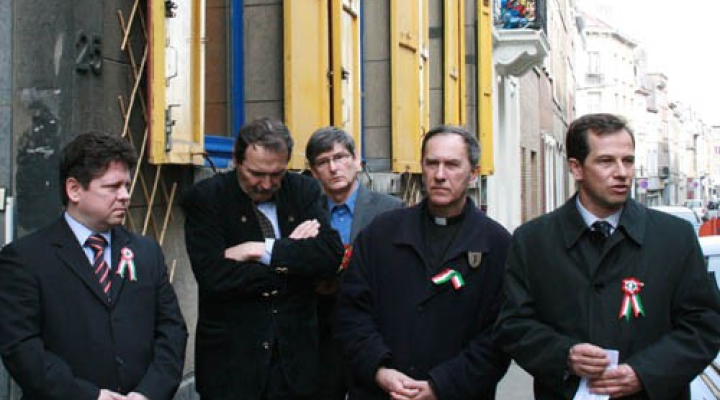Final March 15th commemoration ceremonies in Brussels
Ambassador Zoltán Hernyes reminded the audience that the Europalia festival presented Hungary in 1999. The memorial plaque was placed on the wall of the house at this event and has become one of the most visited Hungarian memorial sites in the city.
Piet Ools presented the work of Sándor Szondi, a person unknown to those attending but greatly appreciated by the Flemish community. Szondi, who arrived as an orphan at the age of four to Belgium played a great role in the Flemish Movement: he offered his literary and community work to the emergence of Flemish culture. – Us, Flemish people have Szondi Sándor, your countryman to thank for the fulfillment of our language rights. Our network of cultural institutions was founded by him and still function according to his ideas.
Hungarian MEP from Transylvania Csaba Sógor spoke about the public and political role of Miklós Jósika, who is often called the Hungarian Walter Scott. Baron Jósika represented the emigrants persecuted after the Hungarian Revolution of 1848-49 through his office in Brussels. The role of the office was to maintain close relation with the important newspapers of the time and keep the issues of Hungarian freedom on the agenda.
- It is a great honor for me to humbly continue this 150 year old tradition and to represent the interest of the Hungarian community here in the heart of Europe, Brussels. We have plenty of work to do, representing Hungarian interests still has a great importance: we still have to fight for the language rights of out fellow Hungarians living in minority status – said Csaba Sógor.











